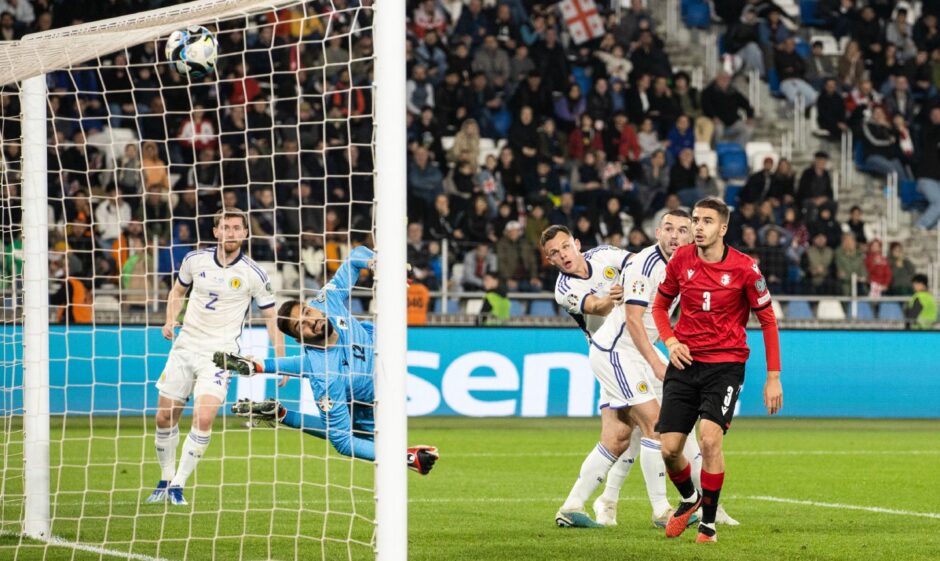Georgia has never been particularly kind to Scotland. Its footballers have often been present when potential milestones have turned into colossal disaster: in 1982, 2007 and 2015, to varying degrees.
Allowing this fixture to be second-last on their qualification schedule was therefore a bold move by the SFA, who owe a debt to the excellence of their players in ensuring progress was sealed before fate could be tempted to take another trip to Tbilisi.
That this was functionally a dead rubber, for both sides, means Scotland will need to wait for another time to pay the Georgians back for the dents they have put in their competitive record.
Consider Lawrence Shankland’s late leveller a small deposit, accounting only for the damage they could so easily have done to Scotland’s players with the highly aggressive, increasingly borderline fashion in which they sought to protect their lead.
It may also constitute a down payment on Shankland’s seat on the plane to Germany.
No wonder he celebrated it so heartily – having slipped so far down the pecking order as to fall completely out of the squad until Che Adams’ withdrawal, it was a good time to produce a moment of old-fashioned centre-forwardry.
At major tournaments, you sometimes need your strikers to score
Almost lost among the near-miraculous winning run and the continuing marvels of McTominay is that Scotland’s strikers had previously contributed only one goal to the campaign.
Though what Lyndon Dykes’ presence allows the side to do is just as important as his pivotal strike in Oslo was, in major tournaments there is often a window where nothing but a goal will do. Shankland continues to show he is as likely as any to find the spot to score it.
If once more it is to be Shankland and Kevin Nisbet fighting over one jersey, there may be a new favourite.


Conversation